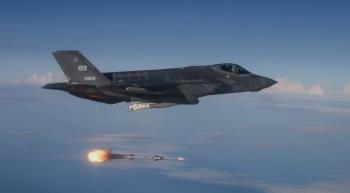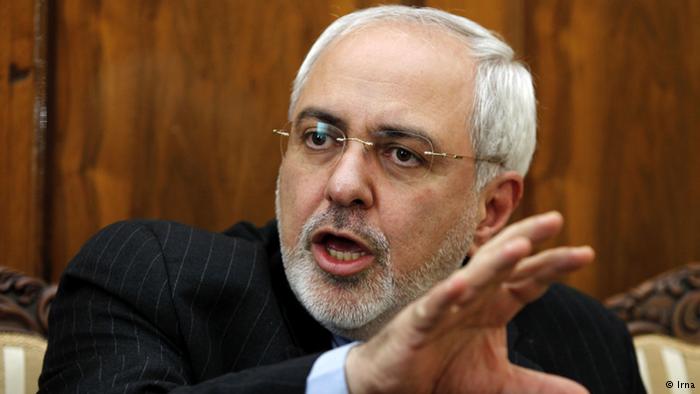Alwaght- Saudis have always funded extremism but one day the terrorist group will come to haunt the Kingdom, Iranian Foreign Minister, Mohammad Javad Zarif said on Friday.
In an interview with the American Council on Foreign Relation, Zarif talked about various topics from Iranian nuclear deal to the war in Syria and Yemen.
“Saudis have created several monsters for us. They created Saddam Hussein. I mean, the amount of money they poured into his army is unbelievable. He turned against them. They created Taliban and al-Qaida. They turned against them. Now they are funding Daesh [ISIS] and al-Nusra. They will turn against them. And once they turn against them, it will be disaster.” He said in his interview.
What Follows is selected from Iran's Foreign Minister' interview that focuses on his view on Islamic republic's regional ally, Saudi Arabia.
Q: So let’s talk about the main player who you accuse of doing this. You had a pretty tough op-ed in The New York Times on Saudi Arabia.
ZARIF: I’m not always nice.
Q: Now, I have to say, this will be recorded, I think, in history that at the Council on Foreign Relations today the Iranian foreign minister described a Sunni jihadist group as kosher. I think that that surely is a first.
ZARIF: I said you called them kosher, not us.
Q: It seemed to me that that piece on Saudi Arabia was very tough. You were essentially arguing, if one could read between the lines, and you didn’t have to read that much between the lines, that Saudi Arabia continues to fund, you know, large numbers of militants in places like Syria. It is essentially exporting its jihadi problem and that that is at the heart of the instability.
ZARIF: Did I break any news to you?
Q: But what I’m struck by is, in writing that piece, you are setting out a pretty tough standard. You don’t seem to think there is any possibility for a negotiation, a rapprochement between you and Saudi Arabia. You drew the line very hard.
ZARIF: I’m sure you read the entire piece, because I end that piece by saying—
Q: Two lines at the end, yes.
ZARIF: Yeah, yeah. But that’s important because none of my Saudi neighbors have said that. I say that Saudi Arabia should be a part of the solution. I believe that our region cannot have a solution based on exclusion.
Q: But do you believe right now—
ZARIF: This is exactly opposed to the Saudi philosophy which wants to exclude Iran from any deal in the region. I am, I think, sober enough—not reasonable, at least sober enough to believe that there cannot be a deal in our region based on the exclusion of one of the important parties. And I believe Saudi Arabia is an extremely important partner, hopefully, in this region.
Q: Would you sit down with Saudi Arabia to negotiate over Syria?
ZARIF: Actually, it should be the Syrians who will negotiate over Syria.
Q: But there are going to be outside—
ZARIF: But Iran and Saudi Arabia and other stakeholders can, in fact, start developing that perspective about the future of Syria.
Q: And you would be willing to—
ZARIF: And I did that. Actually, in the last ISSG meeting—International Syria Support Group—in Vienna about—in the spring, I set out and suggested that we should now start discussing, in a brainstorming fashion—we don’t need to engage in formal negotiations—at least in a brainstorming fashion start discussing your perceptions about the future of Syria so that we can convey it to our friends in Syria so that they could have a better picture of the future of Syria.
I believe that is a must, that all the players in Syria should start thinking about the future, a future that does not require violence, a future that does not require bloodshed. And I believe people in our region must answer this question, and the question is: Do they want an end to war in Syria? I can tell you bluntly that Iran and all its friends want an end to the war in Syria, period, today better than tomorrow.
Q: In response to that op-ed, the Saudi foreign minister wrote an op-ed that let’s say was a mirror image except it didn’t have that last line. And what I wonder about is—you know, the popular perception is that Syria is stuck because the US and Russia are on opposite sides, or seem to be on opposite sides, or are not getting on well enough.
It seems to me that if Saudi Arabia and Iran are as strongly antagonistic as they appear to be—the Saudi foreign minister in that op-ed said, let us not forget Iran is the leading state sponsor of terrorism in the world—not words that you would use if you were trying to begin a negotiating process. My point is it seems as though the two, you and Saudi Arabia, are in a cold war.
ZARIF: Well, first of all, unfortunately the op-ed by my Saudi counterpart was a lot of rehashing of old historical allegations. You don’t see anything recent in his article. But whatever I say in my article pertains to today, not to allegations about 15 years ago, 20 years ago, 30 years ago.
What I talk about is something that started 30, 40 years ago after the victory of the Islamic Revolution, and the West decided to turn a blind eye to, and now you are waking up to a very, very nasty nightmare.
So this is the difference between the approach. I’m not trying to rehash old history. If I wanted to rehash old history, I would have said that Saudi Arabia is a country that supported Saddam Hussein to kill our people. And they did, for eight years. I’m not rehashing old history. There is a lot of old history that can be brought to the surface. It doesn’t resolve our problem.
Our problem today is the fact that they are funding extremism in the hope that they can divert the attention from the inability of the state system in their country and the rest of the region from addressing the difficulties and anxieties and aspirations of the Arab youth into a perceived and manufactured enemy, being either the Shias or the Iranians.
This is the attempt that they have made over the past several decades, and the outcome of it would be the creation of a monster. You remember the Saudis have created several monsters for us. They created Saddam Hussein. I mean, the amount of money they poured into his army is unbelievable. He turned against them. They created Taliban and al-Qaida. They turned against them. Now they are funding Daesh and al-Nusra. They will turn against them. And once they turn against them, it will be disaster.
So they want a—they simply want—and this is where I think Iran and Saudi Arabia have a common interest. The common interest is, while they perceive or believe that they can, in fact, divert the attention of the extremists in the Arab movement towards Iran, they know that at the end of the day they are the real target. They are the real prize. And if they understand that, they would understand that nobody will gain anything from supporting extremism, that the extremism is an animal, a monster, a Frankenstein that will bite the hands that feeds it.
And once that understanding sinks in, once the illusion that we can have the Assad forces and the extremists kill each other off in the battlefields of Syria, once that illusion fades away then there is a possibility for serious cooperation for Iran and Saudi Arabia to sit around the same negotiating table, talk about the future of Syria, and help create an image that would attract the warring party, present to the warring parties a better future that would attract them to negotiate. We are ready to do that anytime.
Q: Let me finally, before I open it up, just clarify one thing.
In the previous answer you said “they are funding Daesh.” Are you saying the Saudi Arabian government is funding ISIS?
ZARIF: I’m saying that a lot of money from Saudi Arabia initially went to the establishment of these organizations. Whether today they are funding Daesh, I do not know. But I know that money is going to al-Nusra. I know that arms are going to al-Nusra. And I know that al-Nusra is getting new recruits.
I mean, I don’t think that angels are bringing them down, I mean, as much as they might want to believe. So they are coming from somewhere. Money is going—coming from somewhere. Weapons are coming from somewhere.
And it’s not that difficult. These weapons are not guerilla warfare weapons. They have tanks, you know? They have missiles. They have antiaircraft missiles. They have antitank missiles.
Q: And you think they—
ZARIF: They have serial numbers.
Q: And they could only come from Saudi Arabia?
Q: My name is Donald Shriver. I’m the former president of Union Theological Seminary here in Manhattan. I want to congratulate you and thank you for your editorial in the New York Times. I think American Christians especially would like to know that Islam has some internal critics as well as its external critics. And my question is, how do we get rid of the Wahhabis?
ZARIF: No, let me—let me just say that please do not equate Wahhabism with Islam. It’s not the same. It’s a very small minority—very small. I mean, most of the Saudis are not Wahhabis. You tell a Saudi that you are a Wahhabi, they will be angry at you. They will tell you that I’m a Hanbali, not Wahhabi.
Wahhabism is a school—a school of thought, a political school in our view. But unfortunately, what the West can do is stop turning a blind eye. For the past four decades Wahhabis have been able to propagate, to sell their books, to sell their literature of hate to finance various mosques. That has to stop. And I think it’s in the long-term interest of Saudi Arabia and its allies that this stops.



























